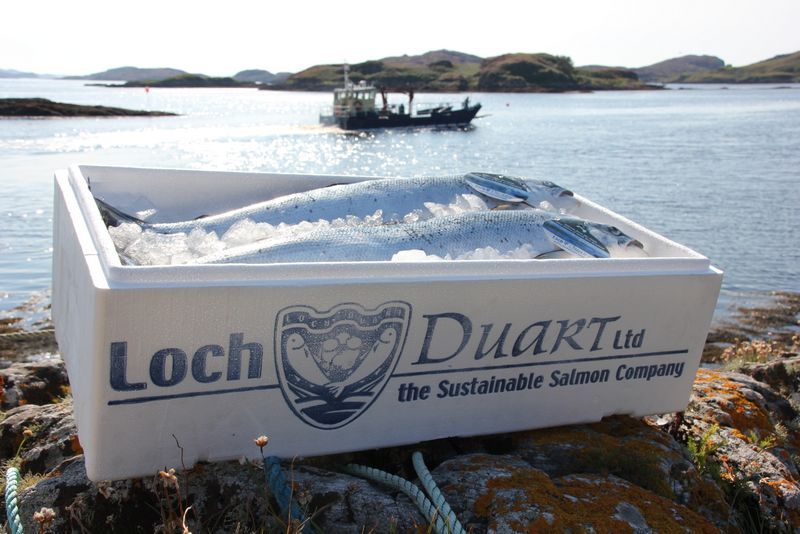Salmon farmer sourcing wrasse ‘responsibly’

SALMON farmer Loch Duart has been working with fisheries and conservation authorities in England since 2016 to source wild wrasse sustainably for use on its Scottish farms.
The company, based in Sutherland and the Hebrides, said its cleaner fish strategy had helped it achieve its lowest historical lice counts on all sites by the end of 2017, even during ‘peak lice’ periods of warmer water.
The independent producer plans having the first medicinal free year in 2018 for the control of sea lice and will be developing wrasse husbandry skills to achieve this.
The company has reduced its annual requirement for wild caught ballan wrasse, but continues to work closely with south coast regulators, and has been praised for its conservative approach to sourcing the species.
The availability of wrasse from the south of England was highlighted by local fishermen. Their sizes are more varied, suggesting an even distribution of populations and generations of fish, good habitat and warmer water temperatures.
The south coast provided Loch Duart with a prime source of high quality ballan wrasse in 2016 and turned the company’s sea lice position around within a year.
Loch Duart representatives met IFCA (Inshore Fisheries and Conservation Authority) officials in December 2017, when it was agreed that the farmer would lead regulation and close monitoring of the fishery.
Lewis Bennett, Loch Duart cleaner fish coordinator, said: ‘When fishermen started catching wild wrasse for Loch Duart in 2016 the fishery was basically open to anyone.
‘The risk of the fishery being over exploited was high even in these wrasse rich locations. Loch Duart found that the key regulatory and advisory bodies developed innovative management measures which were nothing short of outstanding.
‘Loch Duart and the rest of the industry is making the transition from wild caught wrasse to farmed wrasse.
‘Meanwhile, Loch Duart will continue to work closely with authorities including Southern IFCA, Cornwall IFCA , Natural England and Cefas (the Centre for Environment, Fisheries and Aquaculture Science), using their knowledge and experience to protect the fisheries and allow sustainable use of wild wrasse by aquaculture.’
Colin Trundle, principle scientific officer of Cornwall IFCA, said: ‘Cornwall IFCA officers have been very pleased that Loch Duart appears to be using the best available scientific evidence to ensure that they are sourcing cleaner fish responsibly.
‘While their ongoing research has enabled them to minimise the numbers of fish they require from the wild capture fishery, they have also adopted fishery guidance set out by the south coast IFCAs, where the fishery is carried out, and have implemented voluntary measures based on the guidance that will contribute to the sustainability of the fishery.’
There is currently no regulation in Scotland on wrasse fishing, and Loch Duart is working with Marine Scotland officials to set in place standards and fishery guidance.
The company has focused on specific size ranges and specific fishing periods (avoiding breeding periods) backed by ongoing scientific data collection and research.
To optimise health and survival of wild caught wrasse, Loch Duart has a short holding policy prior to transport to reduce stress, and is also developing a transport system with the RSPCA.

